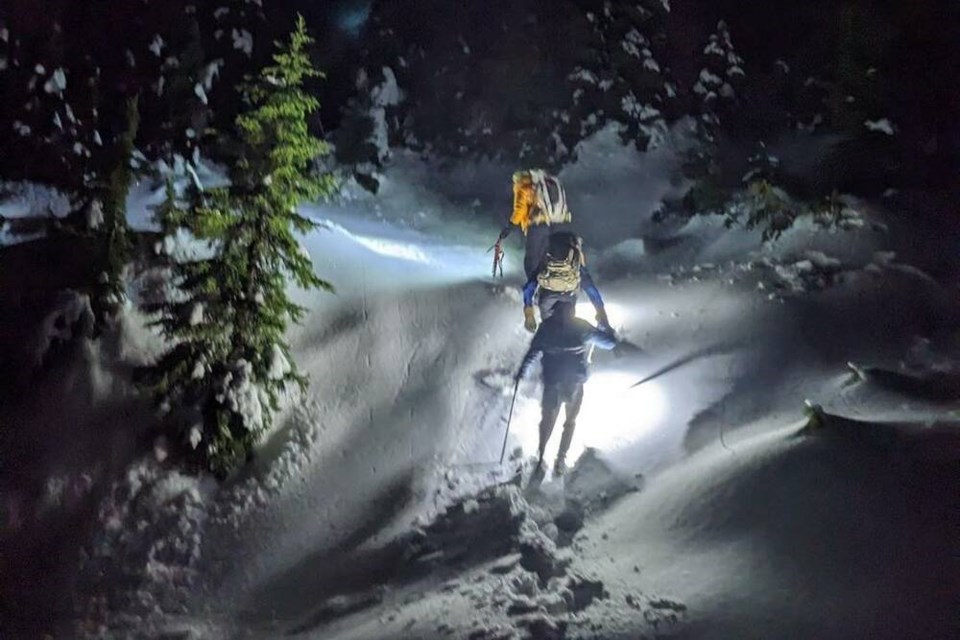Another unprepared out-of-towner has been spared from a cold and bitter end by the lifesaving volunteers at North Shore Rescue.
At around 4 p.m. Sunday, North Vancouver RCMP got a call from an international number, a Frenchman on Goat Ridge in the Grouse Mountain backcountry. He said he was cold and unable to go any further.
NSR got a team together and went up the Grouse Skyride. A snowcat from the resort took them to the trailhead, where the volunteers continued on foot.
At around 7:30 p.m., they found the hypothermic 22-year-old in mostly cloth clothing and wearing running shoes. The hiker was also hungry, as he’d run out of food at lunchtime earlier that day, said NSR search manager Allan McMordie.
After warming the hiker up a bit, the rescue team members were able to safely return him to the Skyride and down the mountain.
The man had taken the bus from Richmond to Lynn Headwaters, and hiked the Kennedy Falls trail, which doesn’t have much elevation gain, McMordie said. Then, consulting a trail app on his phone, he assumed that the Goat Ridge trail was as close to him as it appeared on his screen.
“He thought well I’ll go up Kennedy Falls and join these trails together – not realizing there is no trail there, just horrendous bush whacking and 1,000-foot elevation gain,” McMordie said.
On the bluebird day, the white-capped peaks of the North Shore could be seen from great distances away. “He said he was surprised there was snow there,” the search manager said.
'You have to tell somebody where you’re going'
This story is nearly identical to a rescue , when a hiker visiting from the Netherlands tried to follow trails to the Seymour Dam and back via the Lower Seymour Conservation Reserve – an ambitious hike for experienced hikers in summer conditions.
“The only difference is the country of origin,” McMordie said.
“We’re kind of speculating about what is it about these international people going on these really bizarre routes instead of going up Seymour or Hollyburn where everyone else hikes,” he said.
They do a little bit of research on websites like All Trails and set out, often without telling anyone, McMordie said.
“These international people are coming in and checking out a couple of posts and thinking, ‘Oh this is where I should go,” he said, adding that posts are usually made in the summer months by people with more gear.
“We’re going to have to reach out to some of the moderators of these sites,” to warn potential hikers about how conditions change drastically in the winter, McMordie said.
People are also relying too much on their cell phones, which have spotty service in the backcountry and drain faster in the cold, the 45-year NSR veteran said.
If the hiker’s 911 call hadn’t connected, he likely wouldn’t have survived, McMordie said.
“He didn’t tell anybody where he was,” he said. “We have to hammer home the message: you have to tell somebody where you’re going and when you’re coming back.”



